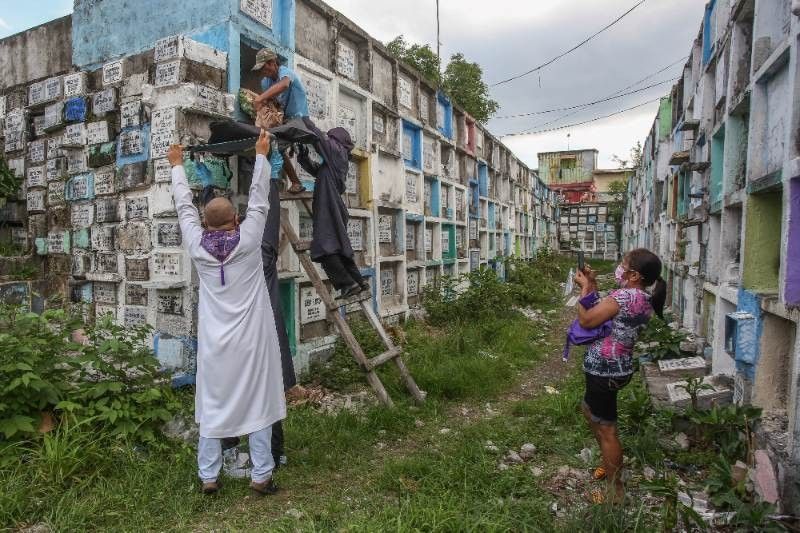ICC junks appeal of Philippine gov’t. What happens next?

MANILA, Philippines — The appeals chamber of the International Criminal Court on Tuesday voted to allow the continuation of the investigation into the drug killings when Rodrigo Duterte was president and mayor of Davao City before that.
The judges in the ICC appeals chamber rejected—by a majority—the appeal of the Philippine government to stop the investigation into possible crimes against humanity committed during Duterte’s bloody “war on drugs.”
“The impugned decision is therefore confirmed,” Presiding Judge Marc Perrin de Brichambaut said, referring to the January 26 move of the ICC Pre-Trial Chamber to grant Prosecutor Karim Khan’s request to resume investigations into the situation in the Philippines.
Brichambaut said the ruling challenged by the government is not a decision on jurisdiction, and the issue of the effect of the country’s withdrawal on the court’s jurisdiction was “neither properly raised nor adequately ventilated” before the ICC’s Pre-Trial Chamber.
Majority of the ICC judges also found that the Philippines failed to demonstrate the errors of the pre-trial chamber.
What’s next for ICC?
Khan will continue gathering evidence, and can request for the issuance of arrest warrants or summonses if he determines that there are substantial grounds to do so.
According to the Human Rights Watch, the judges of ICC will need to approve the issuance of warrants or summonses.
The judges must determine that there are reasonable grounds to believe that the individual named in the request has committed crimes falling under the court’s jurisdiction.
They will also determine whether an arrest is necessary or if a summons to appear is sufficient to ensure the person’s appearance before the court.
HRW said the timeline for issuing arrest warrants or summonses to appear in an investigation can vary significantly—ranging from just under two months to over six years.
Once the individual appears before the court, the next step involves pre-trial proceedings known as confirmation of charges. In this phase, ICC judges evaluate the available evidence to determine whether there are “substantial grounds” to believe the suspects are responsible for the crimes mentioned in the indictment.
A trial date is set if a charge or charges are confirmed.
One of ICC’s biggest challenges is securing arrests as it lacks its own police force, and must rely on the cooperation of states and the international community.
In this particular case, the prospect of anyone being arrested is unlikely.
Justice Secretary Jesus Crispin Remulla said the government will not implement a warrant should the international tribunal issue one.
What’s next for victims and their families?
Families of drug war victims and human rights groups welcomed the move of The Hague-based tribunal, calling it a “step forward” toward attaining justice and accountability.
They said they are ready to cooperate with the investigation of the ICC as it pushes forward.
In a statement, Rise Up for Life and for Rights and the National Union of Peoples’ Lawyers said the victims intend to communicate with the Office of the Prosecutor and the Office of the Public Counsel for Victims. They also sought to be represented by an independent legal representative.
Families who are engaging with the ICC called on others left behind by “drug war” killings to come forward by submitting their testimonies and case information confidentially.
They also urged churches and other civil society organizations to assist families in gathering documents or simply writing down the facts of their case to be used in the investigation.
Officially, 6,252 people were killed in Duterte's "war on drugs." But rights groups say that up to 30,000 may have been killed—some innocent victims—and that corruption was rife among security forces that acted with impunity.
There were only two convictions of law enforcers involved in the "drug war"—the murder of 17-year-old Kian Delos Santos and in the case of 19-year-old Carl Arnaiz and 14-year-old Reynaldo “Kulot” de Guzman.
What’s next for the government?
Following this rejection, the Philippines no longer has any recourse for further appeal.
In a statement Tuesday, the Office of the Solicitor General said the government “will not be deterred by today's outcome.”
“The majority decision does not alter the fact that the republic, through its various national and local agencies, remains fully committed to the internal investigation and prosectuion of allegations connected to the anti-illegal drug campaign,” the OSG said.
The Philippine government can still intervene and assert that the ICC does not have jurisdiction in the event that the court issues arrest warrants or summonses, said British barrister Sarah Bafahdel, the government's external counsel.
“That would be another appropriate time to assert sovereign rights and limit the courts ability and reach in that respect,” Bafahdel said in a briefing.
Set up in 2002 to probe the world’s worst crimes, the ICC is a “court of last resort” and steps in and exercises jurisdiction only if countries are unwilling or unable to prosecute offenders.
The Philippine government insists that local courts are functioning well and can exercise jurisdiction over any complaints.
The Philippines also no longer recognizes the ICC after it left the court in 2019. The tribunal, however, still has jurisdiction over crimes allegedly committed while the country was a state party.
- Latest
- Trending
































